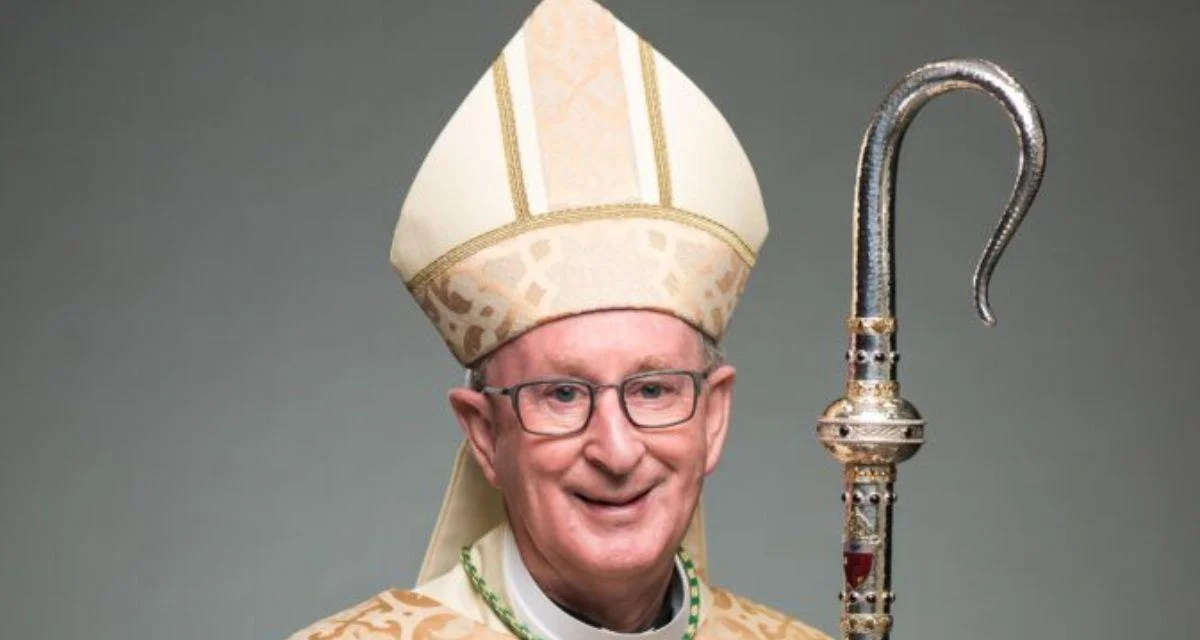
Reverend Joseph E. Kurtz, D.D. Bishop | Archdiocese of Louisville
SOUTH BEND, Ind. — Holy Cross Father Daniel G. Groody, a theologian at the University of Notre Dame, addressed the topic of migration from a theological perspective on September 4 at the Co-Cathedral of St. Matthew in South Bend. Speaking to an audience of approximately 200 people, Father Groody explored whether there is a theology of migration and began his inquiry with Scripture.
Father Groody highlighted various biblical narratives such as the call of Abraham, the exile and return, and the refugee status of the Holy Family. He emphasized that God’s love for humanity was so profound that He left His heavenly homeland to live among humans and sacrifice Himself for their salvation.
Bishop Kevin C. Rhoades of Fort Wayne-South Bend introduced Father Groody at the event. Dan Florin, CEO of Catholic Charities of the Fort Wayne-South Bend Diocese, concluded the session.
Bishop Rhoades shared an anecdote about his visit to a shelter in Gaza where he encountered a child who clung to him tightly. This story was prompted by Carolyn Woo, former CEO of Catholic Relief Services, who asked about reconciling experiences in places of suffering with returning to comfortable lives.
Father Groody's latest publication is “A Theology of Migration: The Bodies of Refugees and the Body of Christ” (Orbis, 2022), which includes a preface by Pope Francis. He has also served as a filmmaker and adviser to various institutions including U.S. Congress, U.S. Conference of Catholic Bishops, Vatican, and United Nations.
At Notre Dame, he holds multiple roles including vice president and associate provost for undergraduate education.
During his talk structured around parts of the Mass—introduction, liturgy of the Word, liturgy of Eucharist, and sending on mission—Father Groody presented statistics indicating that 281 million people have been displaced from their homelands for over a year—the highest number in history.
He pointed out that while migration involves complex issues such as property rights and human rights among others; it fundamentally concerns vulnerable individuals’ stories.
Political positions on migration vary significantly according to Father Groody: from closing borders entirely to advocating open borders or legalization for guest workers. He stressed how language shapes perceptions—whether migrants are termed "aliens," "illegals," or "undocumented" affects societal attitudes towards them.
In relating his discussion back to parts within Mass rituals like Eucharist liturgy where divine-human relationships are bridged through encountering God's image; he underscored bridging gaps between non-human/human elements via God's mission rejecting rejection itself along vision uniting nations & kingdoms imitating life-death cycles too finally concluding session inviting audience reflect internally upon posed question regarding future best practices amid missions themselves posed by self-identified immigrant attendee asking about next steps moving forward practically speaking hereafter yet leaving answer listeners hearts alone ultimately themselves instead overall thusly stated therein then too finally concluded now henceforth evermore thusly ending said herein lastly forevermore accordingly noted thereafter hereunto forthwith amen.


 Alerts Sign-up
Alerts Sign-up